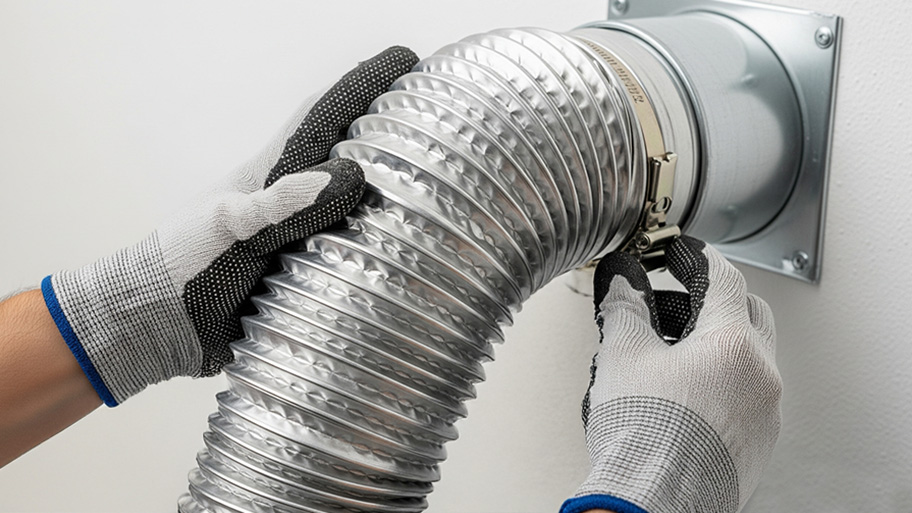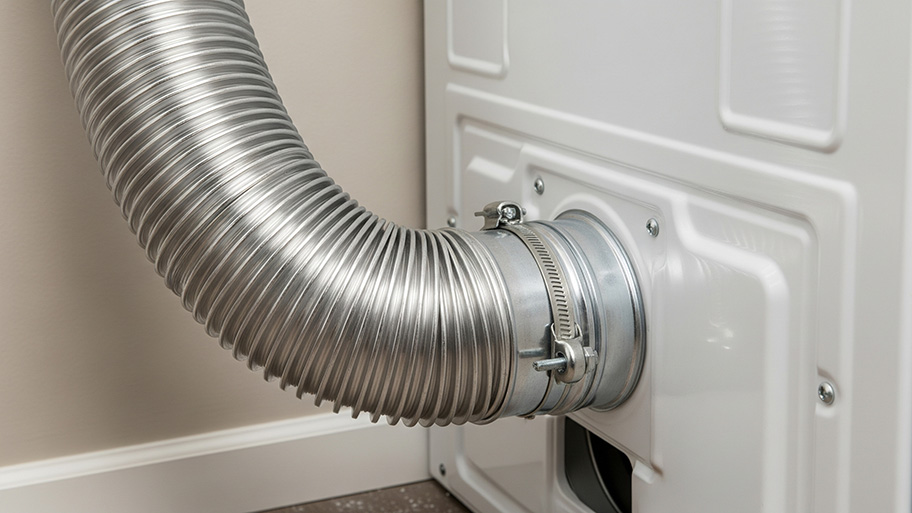
A dryer vent cleaning cost averages about $140 when done by a professional. Read our tips to understand the key cost factors involved in dryer vent cleaning.
Don’t let a dirty lint trap trap you into wearing old clothes


According to the U.S. Fire Administration, failure to clean the dryer is the leading cause of dryer fires, which cause around $35 million in property loss each year. You may think you’re doing a good job of cleaning your lint trap every time you dry clothes, but if you’re not doing a periodic deep-clean, your dryer is still in jeopardy. Here’s everything you need to know to thoroughly clean your dryer lint trap.
Cleaning your dryer's lint filter and housing is as simple as disassembling, removing debris, and reassembling. A cleaning solution and a few tools, such as a brush and vacuum cleaner, are all you'll need.
Start by removing the screen on your dryer vent. The screen might be screwed in for older models, so you’ll need to use your screwdriver to remove the screws before you pull out the screen.

As you would do between laundry loads, use your hands to remove any built-up lint on the screen. Depending on the shape of the filter, this step may mean simply peeling back and discarding the built-up lint or using a finger or two to pry the lint away from its surface. In either case, remove as much of the lint build-up as possible to make the next steps easier.
Next, fill either your sink or a bucket with warm water, a few drops of dish soap, and 1/2 cup of white vinegar. Without bending or warping the screen, fully submerge it in the water and let it soak for 30 minutes.
After 30 minutes of soaking, remove the screen from the water and scrub it gently with your soft bristle brush. You can use a toothbrush to get into all the nooks and hard-to-reach corners that your larger brush might not reach. Continue scrubbing until you’ve removed all the stuck-on lint and dirt.
If it’s particularly dirty, you can deep-clean the lint screen to prevent common dryer problems.
Using a store-bought cleaning solution, spray the mixture on your screen over the sink, and scrub with a soft brush. Rinse the screen thoroughly, and repeat the process until it’s clean.
A baking soda and vinegar mixture can also deep-clean your lint screen. Put your screen in the sink and sprinkle it with baking soda, then spray vinegar all over the screen using a spray bottle. This will cause a chemical reaction where the vinegar and baking soda fizzes and bubbles up. Leave the mixture on for a few minutes, then scrub with a soft brush while rinsing the screen.
Once you’ve gotten all the residue off of your dryer screen, rinse well with warm water. This is an essential step because you can tell how the water runs through the screen if you’ve got all the residue off. If the water flows through the screen, you’re good to go. If water collects on the screen or forms bubbles, you need to do a deeper cleaning or soak the screen again and repeat the scrubbing process.

When you’re sure the screen is spotless, allow it to air-dry thoroughly before putting it back in the dryer. If you put a damp screen back in the dryer, lint will form clumps that’ll clog your vents and cause a fire hazard, or your screen might rust.
While the screen is soaking, use your vacuum with the extended hose attachment to vacuum around the lint trap. Then, clean inside the lint trap using either your dryer vent cleaning kit or a paper towel cardboard tube. If you’re using the tube, tape it to the extended hose attachment with packing or duct tape to create a tight seal. Check frequently to make sure lint isn’t clogging the end. Keep vacuuming until you’ve gotten all the lint cleaned out.

Using the appropriate attachment, vacuum up any fuzz or lint from beneath and around the dryer since some dust probably fell out of the lint trap as you were cleaning it.
Regular dryer maintenance not only keeps your clothes smelling fresh, but can also protect your house against deadly fires. While you’re cleaning your lint trap, schedule these other maintenance tasks:
Clear your dryer lint trap of any lint after every cycle.
Hire a dryer vent cleaning service once a year to thoroughly clean your vent system. This task is best left to a local dryer vent pro.
Clean your dryer annually to avoid any lint or debris buildup.
Don’t overload your dryer to avoid extra strain on the system.
Occasionally cleaning your dryer lint trap as a DIY project is straightforward. However, cleaning the rest of the machine's venting system is another story. Your dryer's lint filter and assembly connect to the rest of the vent, which exhausts hot air and humidity to the outdoors. The full vent system requires annual cleanings at a minimum.
While it's possible to perform this task yourself, a local dryer vent cleaning specialist has the tools and experience to ensure professional results. A dryer vent pro will also ensure that the venting system is put back together correctly to ensure safety and efficiency. The average cost of dryer vent system cleaning is around $145.
Amy Pawlukiewicz contributed to this piece.
From average costs to expert advice, get all the answers you need to get your job done.

A dryer vent cleaning cost averages about $140 when done by a professional. Read our tips to understand the key cost factors involved in dryer vent cleaning.

If you need to move your dryer, or you’re buying a home without proper ductwork, you’ll want to make sure the right pro installs your dryer vent. Read on to find out who installs dryer vents to get the job done quickly and easily.

You might not think much of lint, but it’s actually a major fire hazard. Running your own dryer and dryer vent inspection can help you spot dangerous buildup.

Don’t let a dirty dryer vent cause problems in your home. Not sure how often to clean a dryer vent? Keep reading to learn best practices.

Knowing what questions to ask a dryer cleaning pro can help prepare you for the job. Check out these dryer vent questions before cleaning your dryer vents.

Are you concerned that your dryer vent has accumulated too much lint and debris? Learn who cleans dryer vents so you can hire the best professional for the job.